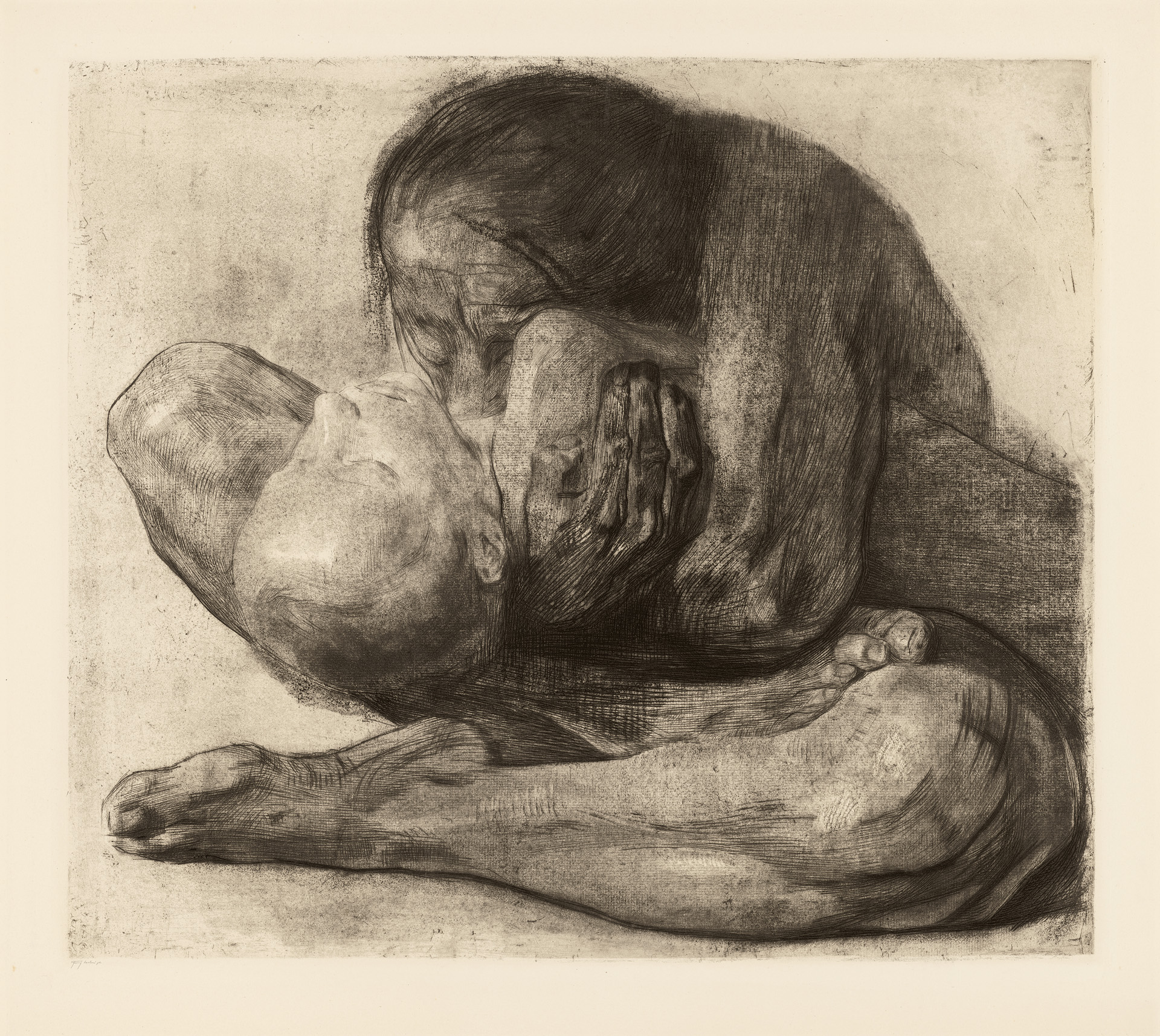A religious sister writes in the Eyes of the Believer column of the Catholic Times on the strong feeling that the image of the mother in deep grief left her. The artist Kollwitz lost her own son in the war and the statue represents all the mothers who have lost their children through injustice and violence. There is a deep sadness in this work, but it also contains the strength of sublimated sadness. Kollwitz is an artist who overcomes sorrow and is committed to justice and peace. In her various works, the theme of the sorrow and solidarity of the underprivileged, such as workers and peasants is the theme.
Two scenes come to the sister's mind while admiring Kollwitz's Pieta. She remembers a young man, Jeon Tae-il, who 50 years ago on Nov. 13th set himself on fire chanting "Abide by the Labor Standards Act! We are not machines!"
She recalls another woman embracing the portrait of her son Kim Yong-gyun a 24-year-old young man, an unregistered, temporary worker who died at a worksite in 2018. His body was caught in a conveyor belt for transporting coal without the proper safeguards for the workers.
The death of Jeon Tae-il became a wake-up call to Korean society. Many began to realize that things had to change. And it did bring change and the beginning of seeing the way many of the poor were living. We had the growth in critical thinking, initiating several campaigns aimed at improving the living standards of the common people and decreasing social inequality.
After Jeon Tae-il's death, his mother succeeded in her son's mission as a worker's mother and founded a Cloth Workers Union, committed to improving the labor reality with her colleagues.
And in 2018, half a century later, another person who lost her young son, mother of Yong-gyun Kim participated in an activity to protest the problems with non-regular workers. After his death, his mother pledged to fight for the improvement of dangerous workplaces, listening to the analogy of the "son who fell into the well," saying how can they only be sad that the son is missing.
We are preparing for the 50th anniversary of Jeon Tae-il's death like never before but as of 2020, the labor field has not improved much, and as of 2020, due to a heavy work load after coronavirus infection, about 7 workers a day die in the work place. Money has been put in first place over human dignity. What should be the understanding of believers on this issue?
Pope St. John Paul II, in the foreword in his encyclical on Labor says: "It is not for the Church to analyze scientifically the consequences that these changes may have on human society. But the Church considers it her task always to call attention to the dignity and rights of those who work, to condemn situations in which that dignity and those rights are violated, and to help to guide the above-mentioned changes to ensure authentic progress by man and society."
Pope Francis also said in a meeting with workers in 2013 that "the most important factor in human dignity is labor, and to achieve true human development, labor must be guaranteed, and this task is the duty of society as a whole."
Currently, Kim Yong-gyun's mother is shouting on the street with her son's colleagues, non-regular workers, calling for the enactment of the, "Punishment Act for Severe Accidents" ( A law aimed at protecting workers from industrial accidents by seeking punishment for the company and the relevant public officials in charge of safety management)
The sister concludes her article praying that the law in protection for the workers will be enacted.

No comments:
Post a Comment